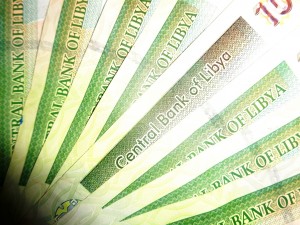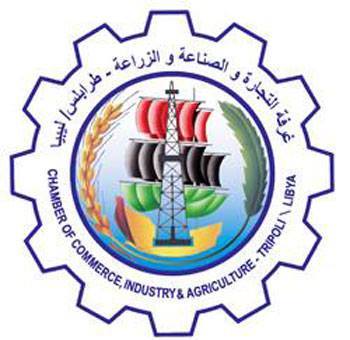By Libya Herald reporter.

Malta, 11 January 2015:
In a major backtrack on earlier announced economic policy, the Salvation Government of Libya, unrecognized . . .[restrict]by the international community, allayed fears today that its austerity plans and cuts in state spending, in response to Libya’s dire economic crises, would involve any cuts to state salaries.
The declaration comes on the back of statements by both the recognized and unrecognized governments intending to introduce some austerity measures to make-up for the anticipated deficit in 2015 as a result of a steep fall in Libya’s oil production and an equal fall in world crude oil prices.
The announcement today seems to be a backtrack by the Salvation Government which had announced on 6 January that it was planning to suspend planned salary increases and the payment of any benefits to government officials, and enforce the use of national IDs in paying government salaries. It had also announced that it was planning to stop the payment of the family bonus as well as to remove subsidies on fuel and electricity.
“The decline in oil production to around 240,000 b/d, a fall of oil prices and increased spending have caused a massive budget deficit,” GNC spokesman Omar Hemadan had said at a press conference just after his government’s announcement. Asking Libyans to be patient, he had said that there could be no more money spent on salaries. “We are at war” he had said, and money had to be spent on munitions.
The move by the unrecognized Salvation Government in Tripoli had mirrored that of the internationally recognized government in Beida, faced with the same spending headaches. At its first meeting of the new year in Beida six days earlier, it had agreed as part of its austerity efforts to cut spending on the needs of displaced Libyans and reduce the number of attachés at Libya embassies around the world.
The economic crisis in Libya has become so large and obvious that even religious figures had intervened. By coincidence (or possibly not), Sheikh Sadik Al-Ghariani, who is recognised as Grant Mufti by those in power in Tripoli but no longer by the House of Representatives in Tobruk and the government in Beida, called on Hassi to stop paying salaries to anyone not turning up to work, cut the salaries of higher paid officials and end the system whereby some government employees were drawing more than one salary. He also demanded an end to bonuses for government employees.
The Central Bank of Libya (CBL) renewed its call in December for the use of the National ID Number as the only means for state employees to access their salaries. The CBL had said that the use of the National ID Number was ‘’key to cutting the state deficit’’.
State-sector wages in Libya have ballooned totally out of control. In 2010, for example, the state’s wages bill was only LD 8 billion. Next year it is expected to be around LD 24 billion. Fuel subsidies, which are also targeted by both governments for reform, are thought to have reached LD 8 billion in 2014.
The CBL has been trying to take a neutral position between the two governments, paying out only state-sector salaries and costs and for subsidies. It has not, supposedly, being paying for any projects or any military costs other than wages.
It will be recalled that in September 2013 the then government of Prime Minister Ali Zeidan had announced that public sector wages would be increased by 20 percent as part of a plan to remove subsidies on commodities. [/restrict]








